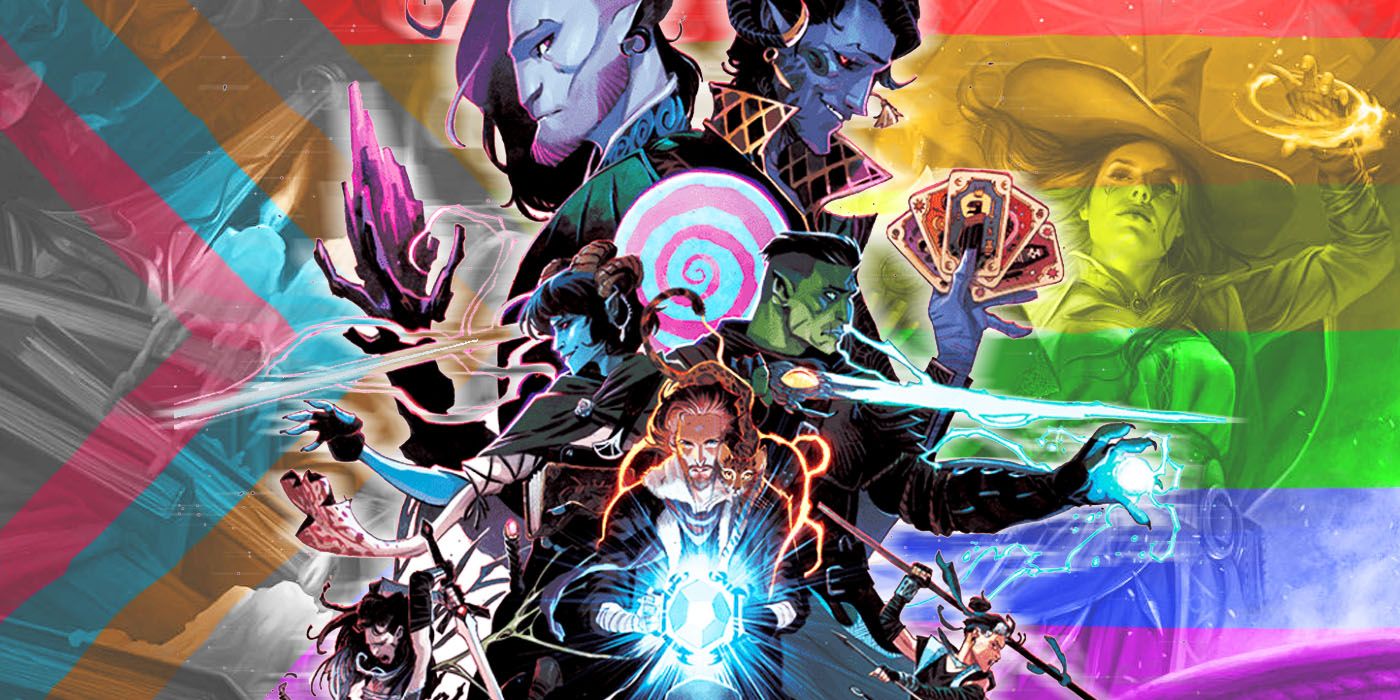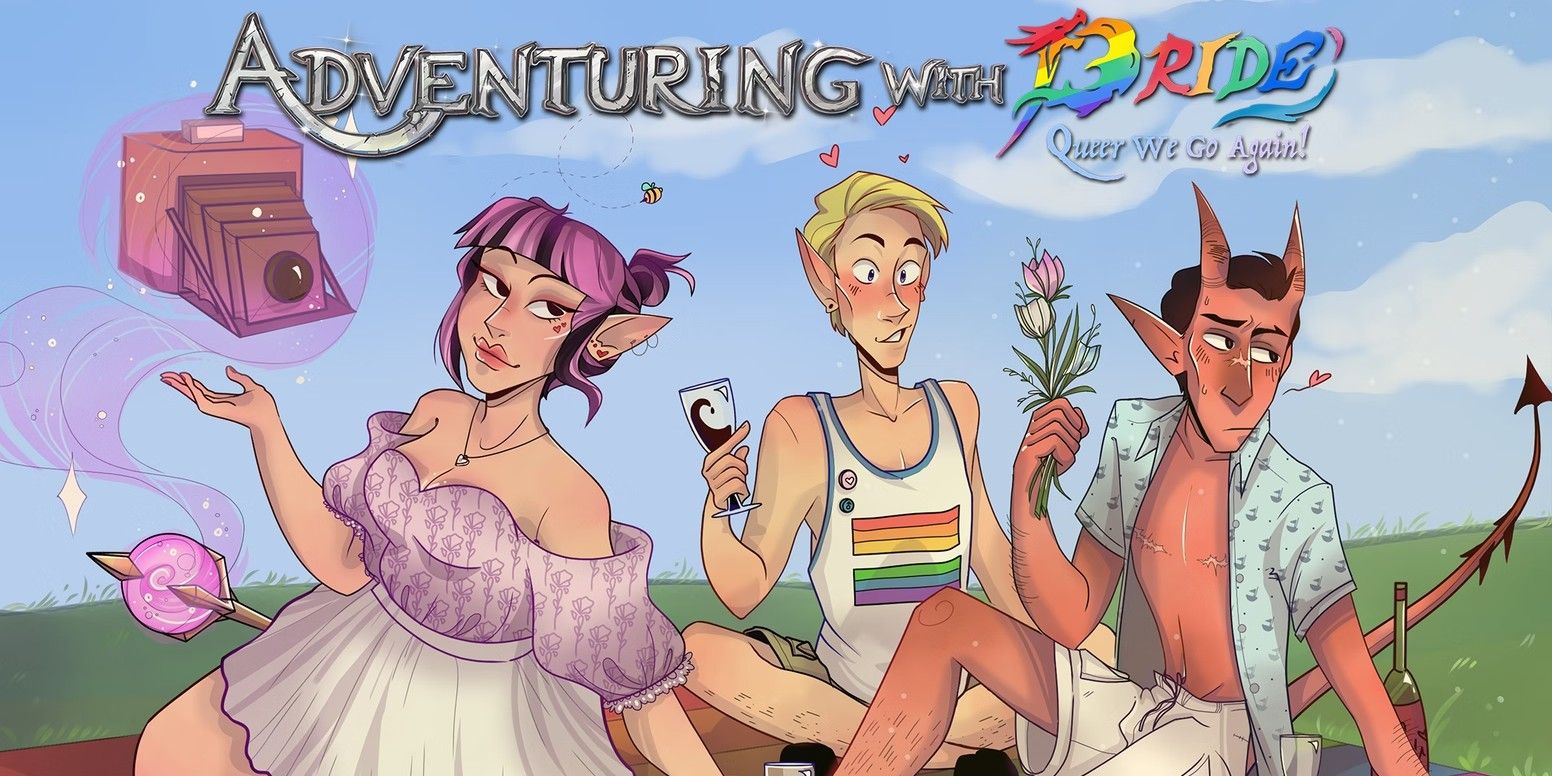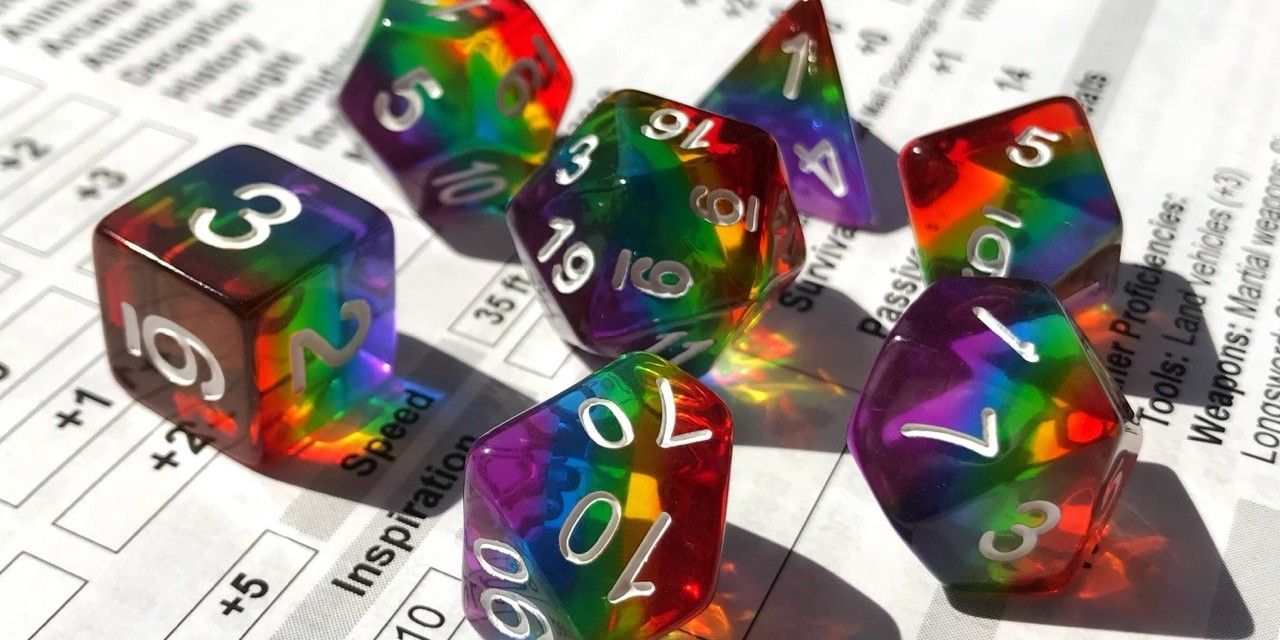Dungeons & Dragons has had a reputation of being overcrowded with cisgender men since its creation. More recently, however, on platforms such as TikTok and Instagram and in D&D actual play shows, playing D&D has become increasingly popular among the queer community. This change in the demographics of the D&D community has really become more prominent in the last few years, and it's been accompanied by a change in the type of content seen in tabletop role-playing games, as well.
Such a shift reflects not only the content in these games but also the way that they're played. So what aspects of TTRPGs have led to the creation of a subculture of queer people who are passionate about fantasy role-playing games?
One of the great things about tabletop role-playing games that largely exist in imagination is that players can be anything they want. This is a lovely thing for queer folks, especially those who are in the process of recreating themselves. In the real world, queer people are always subjected to being described in a way that people see them. Gendered terms and pronouns may be misattributed to them based on their appearance. Creating a character in a TTRPG allows players to wholly describe who they will be playing as, including what the character looks like and how they identify themselves. This can be a fun opportunity for those questioning their gender or pronouns to test out how it feels to be referred to differently. The ability to do this in TTRPGs when most video games, TV series, and other media don't offer the same representation can be an amazing feeling.
Playing TTRPGs can foster a sense of community that many queer people leave when they start living their lives how they wish. Spending hours together playing games, coming up with stories, and enjoying each other's company creates a sense of found family both in and out of the game. A party of ragamuffin characters fleeing something in their old lives only to find a group of friends to adventure with reflects the real felt experiences of many queer people. The TTRPG community is also highly accepting and loving of queer people and creates opportunities for them to be centered in representation through things like D&D actual plays such as Dimension 20.
TTRPGs are also highly focused on consent and producing an equally enjoyable experience for everyone at the table. Especially in campaigns and games where characters fall in love, are betrayed, lose loved ones, and die, consent between players and Game Masters is very important. This consent-based playstyle extends to the rules of TTRPGs as well, since many of them are very flexible. Having the freedom to explore different emotions, relationships, and identities surrounded by others who understand and respect boundaries is a wonderful thing for queer people. In queer relationships and with self-identification -- both which allow people to create their own rules -- consent and understanding each other's desires are very important. This commonality in TTRPGs and the queer community has brought a natural overlay between the two communities.
Outside actual plays, the TTRPG scene is filled with queer content. The easiness of making TTRPG rules and systems has led to a whole slew of systems and stories that are made by and for queer people. Games like Thirsty Sword Lesbians use the Powered by the Apocalypse ruleset to bring players into sapphic tales, turning enemies into lovers and lovers into enemies. The themes and adventures TTRPG players use are entirely up to them, no matter what system they are using. Players can use any number of 5th Edition supplements that contain queer content or are free to create their own.
World-building in TTRPGs can also give players the power to create societal norms that differ from our own. The culture around TTRPG writing has slowly been moving away from racial biases where fantasy races and lineages are able to choose their own destiny and be members of a society that doesn't see their race as inherently "evil." Game Masters and players can create worlds where the societal tension that stems from differences in race, gender, and sexuality doesn't exist. Players can come to these worlds and focus on adventures while being and loving who they'd like. Unfortunately, for many people, living an authentically queer life in the real world is as much of a fantasy as magic, goblins, and dragons.



